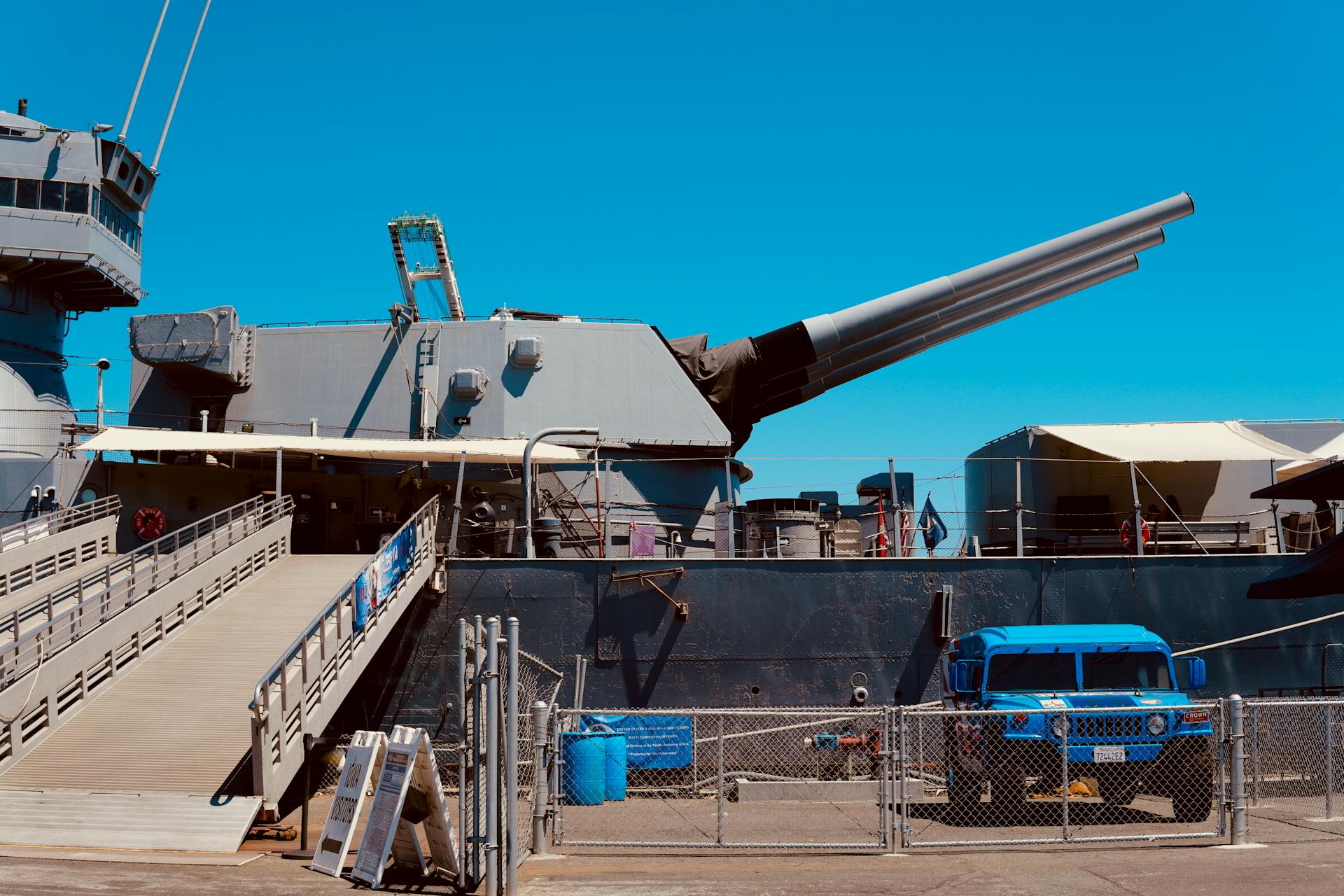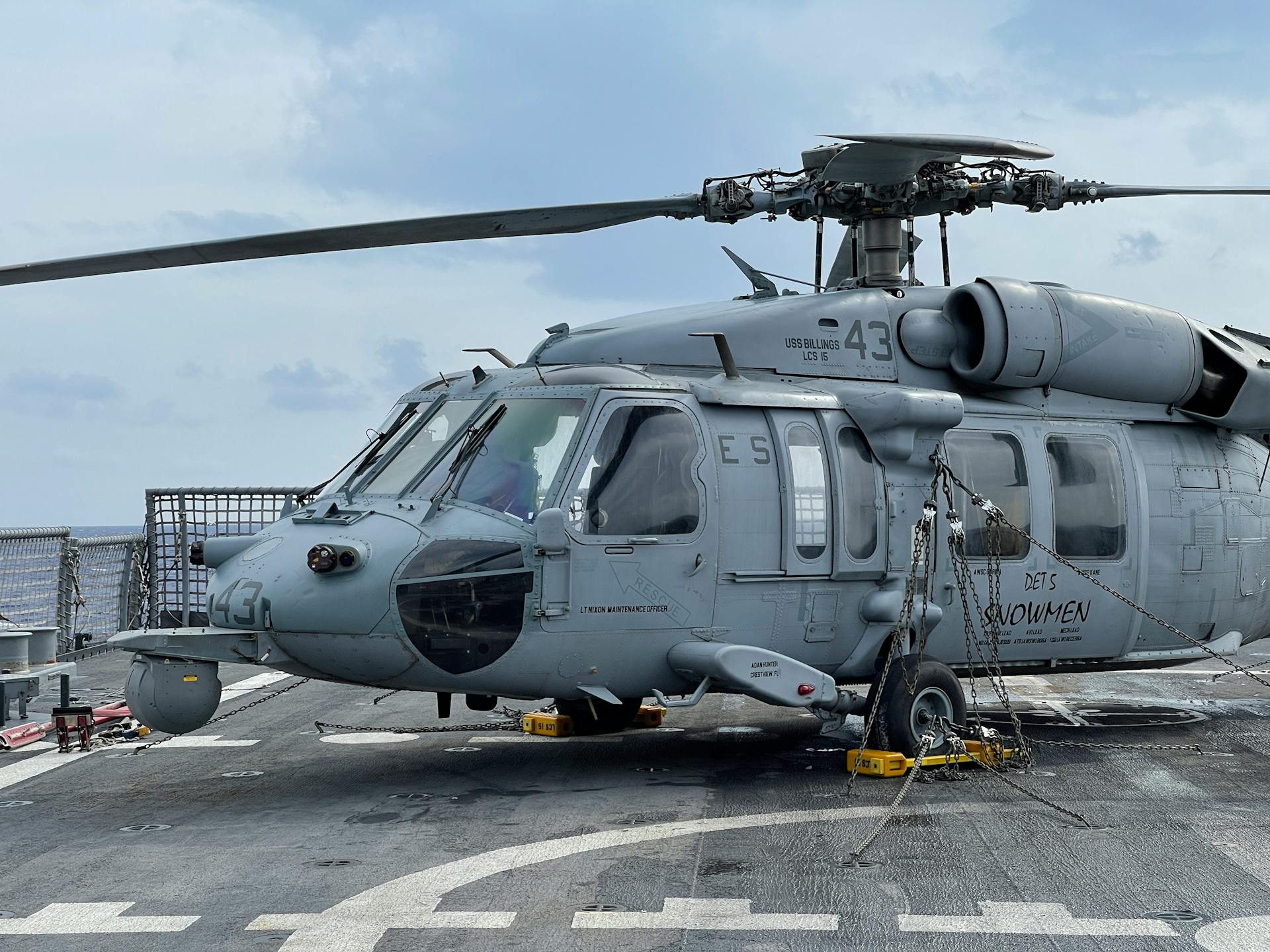
The USS George Washington has been a long-serving aircraft carrier, but its Refueling and Complex Overhaul (RCOH) has been a story of delays and setbacks.
The first RCOH delay occurred in 2007, when the Navy announced that the carrier would be delayed by 11 months due to design changes.
The USS George Washington's RCOH was initially scheduled to take place in 2006, but it was pushed back due to the complexity of the work required.
The RCOH process involves a complete overhaul of the ship's systems, including its nuclear reactor, steam generators, and propulsion plant.
Causes of Delays
The USS George Washington's RCOH delays were caused by a combination of factors, including budgetary constraints and the impact of the COVID-19 pandemic.
Budgetary decisions made in FY15 led to delays in the RCOH planning and induction timeline, which contributed to the lengthy overhaul period.
The arrival condition of the ship was more challenging than expected, planned or budgeted for, including growth work in significant areas of the RCOH.
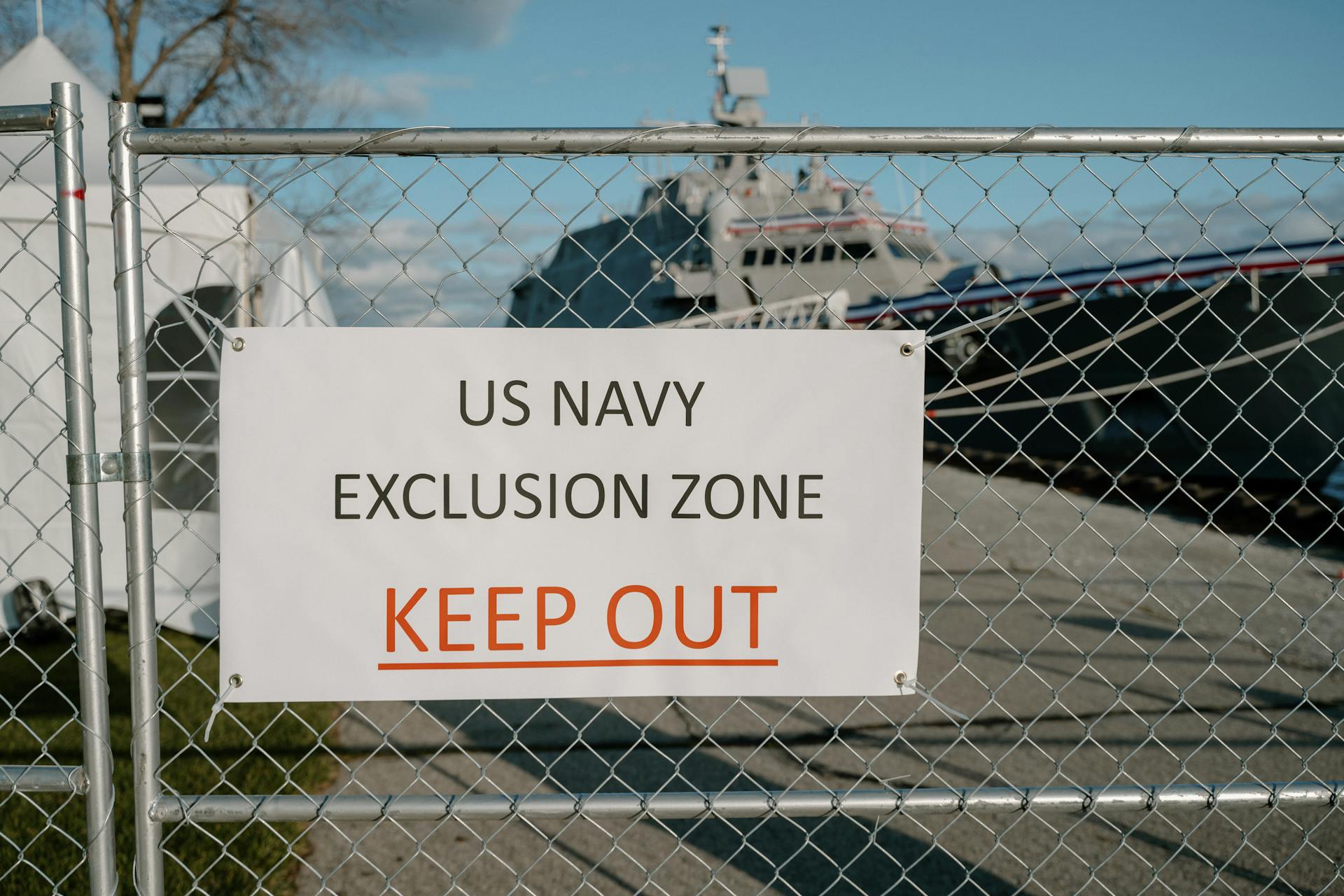
Labor issues also played a role, with the COVID-19 pandemic affecting the workforce and industrial base.
The requirement to remove critical parts from CVN-73 to support higher-priority, deploying aircraft carriers further delayed the process.
Systemic issues in naval maintenance, such as an aging fleet requiring more extensive repairs and limited shipyard capacity, are also contributing to delays in RCOH schedules.
These systemic issues are not isolated to the USS George Washington, as other carriers, including the USS John C. Stennis, are facing similar delays in their RCOH schedules.
The complexity of modern naval systems is also a factor, requiring more extensive repairs and upgrades than older systems.
Impact of Delays
The prolonged RCOH process for the USS George Washington has significant implications for the U.S. Navy's operational capabilities.
Reduced fleet availability is a major concern, as the delayed maintenance leaves fewer ships available for deployment.
Increased stress on crew members is another consequence of the RCOH delays.
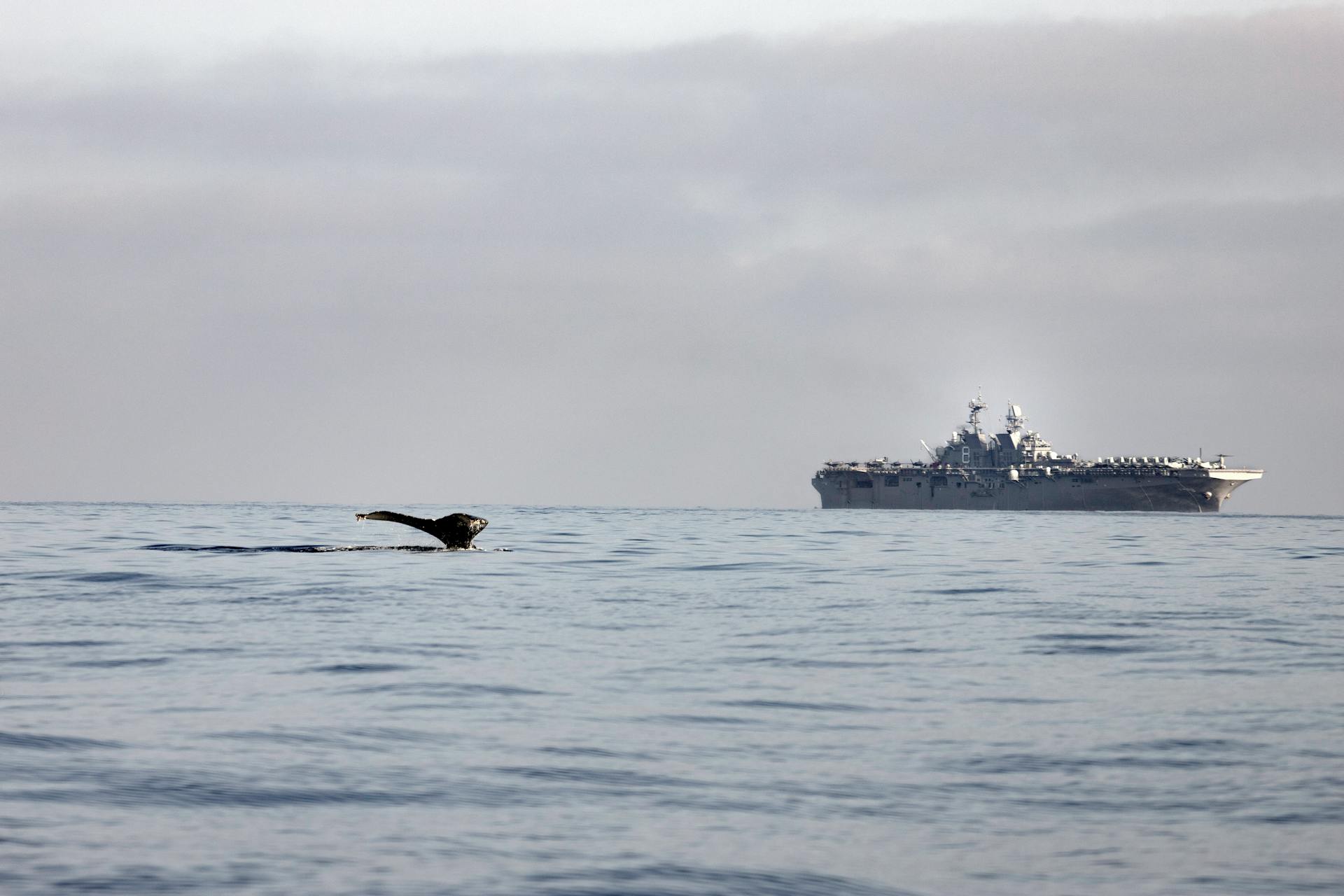
The potential for gaps in naval presence in key global regions is a pressing issue, as the Navy's ability to project power is compromised by the delayed maintenance.
The prolonged RCOH process is not just a minor inconvenience, but a serious issue that affects the Navy's ability to respond to emerging threats and crises.
USS George Washington's 6-Year Overhaul: Tragedy and New Mission
The USS George Washington's 6-Year Overhaul was a long and arduous process that lasted over 2,100 days.
Budgetary constraints, the COVID-19 pandemic, and labor issues all contributed to the delays in the ship's repair period.
The ship's manufacturer Newport News Shipbuilding cited several factors that extended the repair period, including changes in planning and induction timeline due to budgetary decisions.
George Washington did not leave the dry dock for sea trials until summer 2023, nearly six years after beginning her overhaul process.
The overhaul process was part of a $2.8 billion contract with Newport News Shipbuilding, which included upgrades to the ship's propulsion equipment, infrastructure, and combat systems.

The ship received significant upgrades, but the delays and changes in planning and induction timeline caused by budgetary decisions and other factors meant that the ship was not ready for sea trials until much later than expected.
George Washington replaced USS Ronald Reagan in the U.S. 7 Fleet after completing her overhaul and sea trials.
What's Next for These Carriers?
The USS George Washington's RCOS delays have been a major concern for the Navy.
The Navy plans to perform a series of upgrades on the carrier, which will include the installation of the RCOS system.
These upgrades are expected to take several months to complete, and the Navy is working to minimize the impact on the carrier's operations.
The RCOS system is a critical component of the carrier's operations, and its delay has significant implications for the Navy's overall strategy.
The Navy has identified several factors contributing to the delays, including the complexity of the upgrades and the need for additional testing.
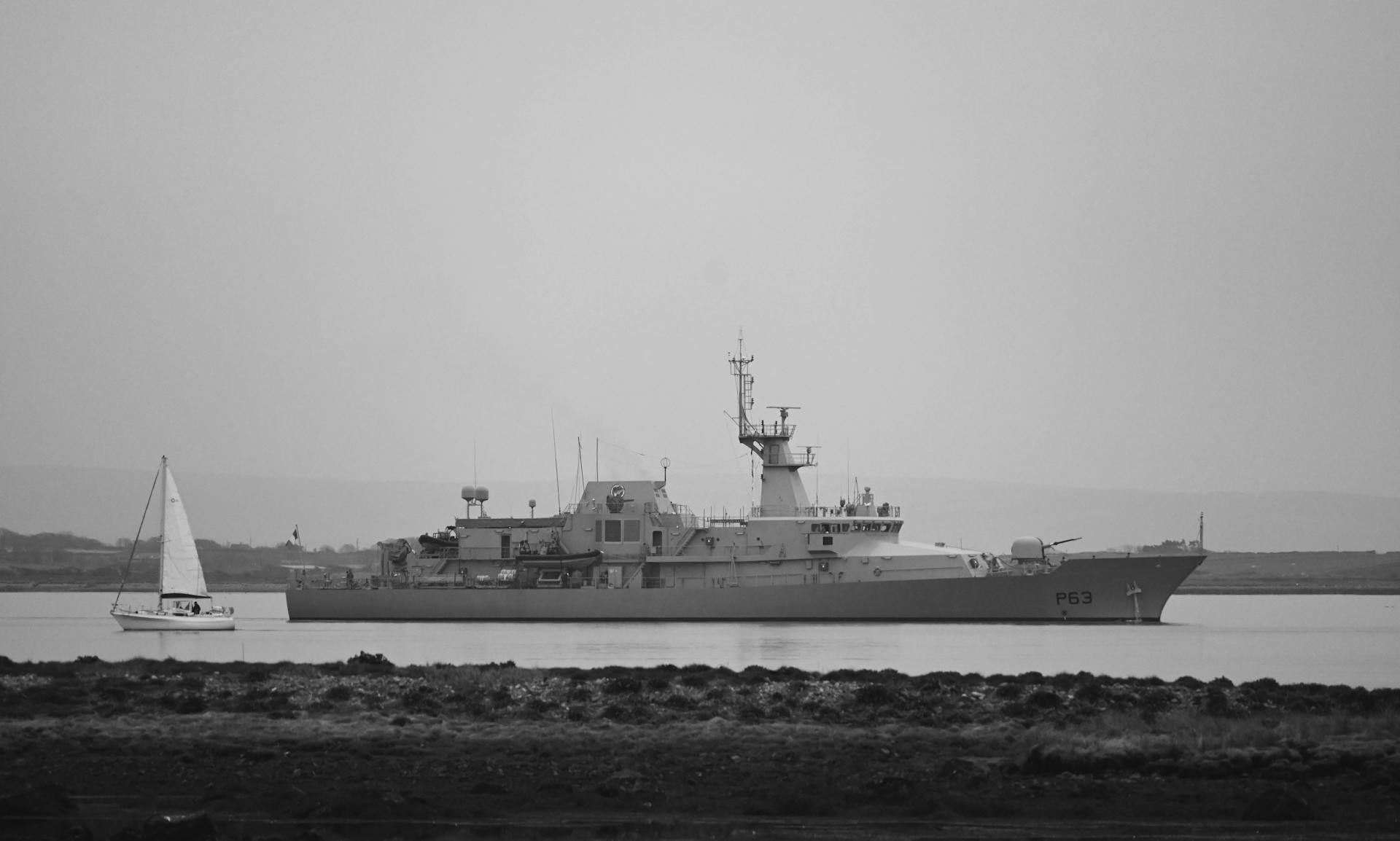
The RCOS system is a complex piece of equipment that requires careful installation and testing to ensure it functions properly.
The Navy is working to address these challenges and get the RCOS system up and running as soon as possible.
The RCOS system is essential for the carrier's ability to operate effectively, and its delay has significant implications for the Navy's overall readiness.
Sources
- https://www.19fortyfive.com/2024/12/a-navy-aircraft-carrier-will-be-out-of-action-for-over-5-years/
- https://nationalinterest.org/blog/buzz/it-took-2100-days-get-1-navy-aircraft-carrier-back-service-211952/
- https://nationalinterest.org/blog/buzz/navy-nuclear-aircraft-carrier-literally-went-nowhere-almost-6-years-212532/
- https://internationaldefenceanalysis.com/six-year-hiatus-for-aircraft-carrier-uss-george-washington/
- https://www.defensenews.com/naval/2022/03/18/carrier-george-washington-running-more-than-a-year-behind-schedule/
Featured Images: pexels.com

